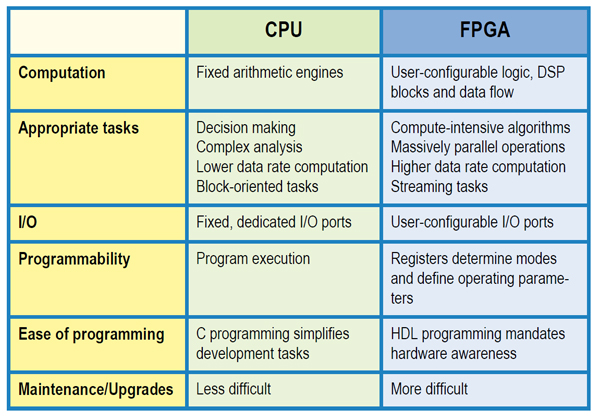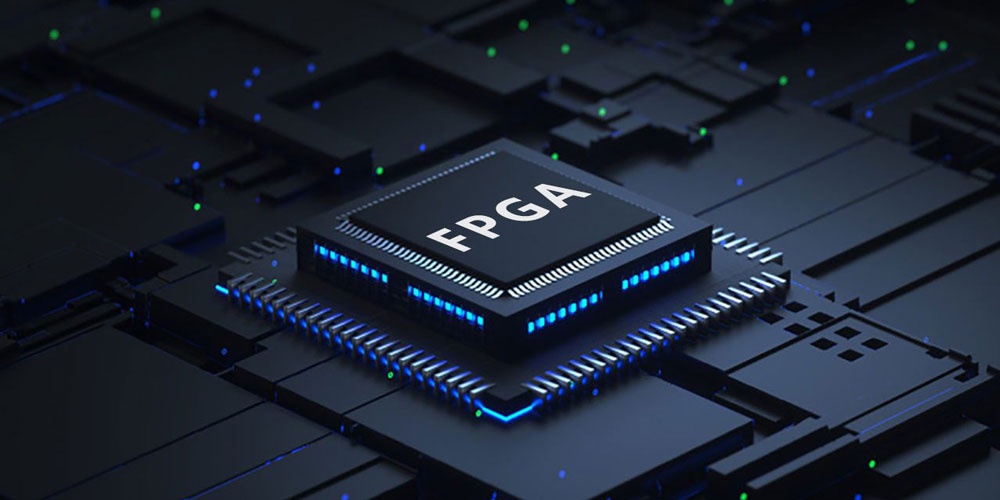When we talk about computers, the Central Processing Unit (CPU) often comes to mind.
But another hardware hero is the Field-Programmable Gate Array (FPGA).
The question is this: Is FPGA better than CPU?
Understanding CPU and FPGA
What is a CPU?
A CPU is the brain of your computer. It does many tasks like calculations and running programs.
What is an FPGA?
Imagine a big LEGO set. You can build many different things with it. That's like an FPGA.
Key Differences Between FPGA and CPU
Here's a table that shows some major differences:
| Feature | CPU | FPGA |
|---|---|---|
| Flexibility | Less, because it has a fixed structure. | More, because you can change it for different tasks. |
| Speed | Faster for general tasks. | Faster for specific tasks that it's made for. |
| Complexity | Simpler to use for most people. | Can be complex, but gives you a lot of control. |
| Use cases | Good for everyday use like browsing and office work. | Good for special tasks like video processing or data analysis. |
CPU Advantages
- CPUs are great for daily tasks we do on computers.
- They can run many programs at the same time.
- Most software is made to work well with CPUs.

Credit: www.pentek.com
FPGA Advantages
- FPGAs can be faster for tasks they are designed to do.
- They are great for projects where needs might change.
- With FPGAs, you can try new ideas quickly.
Performance and Speed
When it comes to speed, it's not an easy win for either side.
CPUs are usually quicker for things many people do every day.
But, FPGAs can be faster for jobs like working with videos.
Which Should You Choose?
Choosing between FPGA and CPU depends on what you need.
Think about these questions to help you choose:
- What kind of tasks will I do?
- Do I want to do something very special with my computer?
- How much money can I spend?
Frequently Asked Questions
What Makes FPGA Unique From CPU?
FPGAs offer customizable hardware tailored to specific tasks, resulting in potentially faster performance for those tasks compared to general-purpose CPUs.
Can FPGAs Outperform CPUs?
In tasks that benefit from parallel processing and hardware optimization, FPGAs can outperform CPUs by executing multiple operations simultaneously.
Why Choose FPGA Over CPU?
Choosing an FPGA over a CPU can be beneficial for applications requiring high-speed, real-time processing and custom hardware configurations.
What Applications Suit FPGA Best?
Applications that suit FPGAs best include signal processing, data encryption, image processing, and custom logic circuits requiring rapid execution.
Why FPGA is better than microprocessor?
FPGAs (Field-Programmable Gate Arrays) and microprocessors serve different purposes and excel in different scenarios. Whether one is "better" than the other depends on the specific requirements of the application.
Here are some reasons why FPGAs might be preferred over microprocessors in certain situations:
-
Hardware Customization: FPGAs can be programmed to implement custom hardware functionality, whereas microprocessors execute software instructions. This allows FPGAs to perform tasks in parallel and achieve higher performance for certain applications.
-
Low Latency: FPGAs can offer lower latency than microprocessors because they operate directly on hardware rather than through layers of software abstraction.
-
Power Efficiency: In some cases, FPGAs can be more power-efficient than microprocessors for specific tasks because they can be optimized for parallel processing and tailored to the application's needs.
-
Real-time Processing: FPGAs are well-suited for real-time processing tasks where determinism and timing are critical. They can be configured to meet strict timing requirements, which is challenging with general-purpose microprocessors.
-
High-Speed Interfaces: FPGAs often include specialized high-speed interfaces such as PCIe, Ethernet, or DDR memory controllers, making them suitable for applications requiring high-speed data processing and communication.
-
Reconfigurability: FPGAs can be reprogrammed or reconfigured to adapt to changing requirements or to fix bugs without the need for hardware changes, which can be advantageous in certain applications.
Conclusion
So, we can see that both the CPU and FPGA have their strengths.It's all about what's right for you.
Want to learn, play games, or write? A CPU could be best for you. Need to do something really special? Think about an FPGA.
Remember, the best choice is the one that fits your needs!
Thank you for reading. We hope you know more about CPUs and FPGAs now!


No comments yet